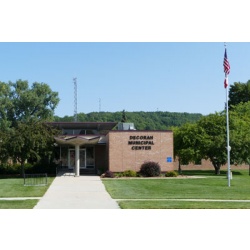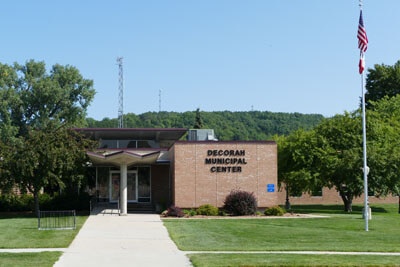
Letter to the Editor: The actual need for sidewalks in the Bruening subdivision does not appear to have been part of the Decorah City Council's deliberations
Posted: Suni, Oct 21, 2018 12:43 PM
(The following Letter to the Editor has been submitted by Dennis Hurtz of Decorah):
"At the Monday, October 15th, Decorah City Council meeting, the council voted 6-1 to proceed with additional planning for sidewalks in the Bruening Subdivision. The council appears to be acting solely on the basis that the City Code requires sidewalks. The actual need for sidewalks in the subdivision does not appear to be part of the deliberation.
The need for sidewalks is primarily a function of vehicle traffic volume and speed, volume of pedestrian traffic, and/or the existence of vehicle/pedestrian attractions such as schools, businesses, churches, etc.; in other words, to address pedestrian safety concerns. No pedestrian attractions exist in the Bruening Addition; pedestrian and vehicle traffic is and will remain very low; and no safety issues have been publicly expressed. Thus the primary need for sidewalks is very minimal and there are significant issues due to the existing topography and developments.
Code Chapter 16 Section 16.04.180 D. states "Sidewalks shall be required in all subdivisions unless waived after receiving the report and recommendations of the city engineer. ----" . It is not publicly known what engineering recommendations (if any) are in the file for the Bruening Subdivision other than a comment by the City Manager that there are notes suggesting that sidewalks should have been included.
To date, the Decorah City Council has not identified any issues in the Bruening Addition that need to be or will be addressed by the installation of sidewalks. It appears the council's intent is to enforce the sidewalk issue without identifying a need or benefit, solely to comply with a Code requirement. This strict approach is the easiest as it does not require the application of logic, reasoning, or consideration of the best public interest coupled with fiscal responsibility.
Spending resources to force homeowners to spend thousands on unneeded additional infrastructure when available resources are inadequate to properly maintain already existing and needed infrastructure does not demonstrate sound leadership and fiscal responsibility."
The need for sidewalks is primarily a function of vehicle traffic volume and speed, volume of pedestrian traffic, and/or the existence of vehicle/pedestrian attractions such as schools, businesses, churches, etc.; in other words, to address pedestrian safety concerns. No pedestrian attractions exist in the Bruening Addition; pedestrian and vehicle traffic is and will remain very low; and no safety issues have been publicly expressed. Thus the primary need for sidewalks is very minimal and there are significant issues due to the existing topography and developments.
Code Chapter 16 Section 16.04.180 D. states "Sidewalks shall be required in all subdivisions unless waived after receiving the report and recommendations of the city engineer. ----" . It is not publicly known what engineering recommendations (if any) are in the file for the Bruening Subdivision other than a comment by the City Manager that there are notes suggesting that sidewalks should have been included.
To date, the Decorah City Council has not identified any issues in the Bruening Addition that need to be or will be addressed by the installation of sidewalks. It appears the council's intent is to enforce the sidewalk issue without identifying a need or benefit, solely to comply with a Code requirement. This strict approach is the easiest as it does not require the application of logic, reasoning, or consideration of the best public interest coupled with fiscal responsibility.
Spending resources to force homeowners to spend thousands on unneeded additional infrastructure when available resources are inadequate to properly maintain already existing and needed infrastructure does not demonstrate sound leadership and fiscal responsibility."
Copyright © - decorahnewsarchive.com. All rights reserved.| Terms Of Use Statement.

Site designed and maintained by Iroc Web Design Services©.
Your Small Business Web Design Solutions.™
Site designed and maintained by Iroc Web Design Services©.
Your Small Business Web Design Solutions.™


